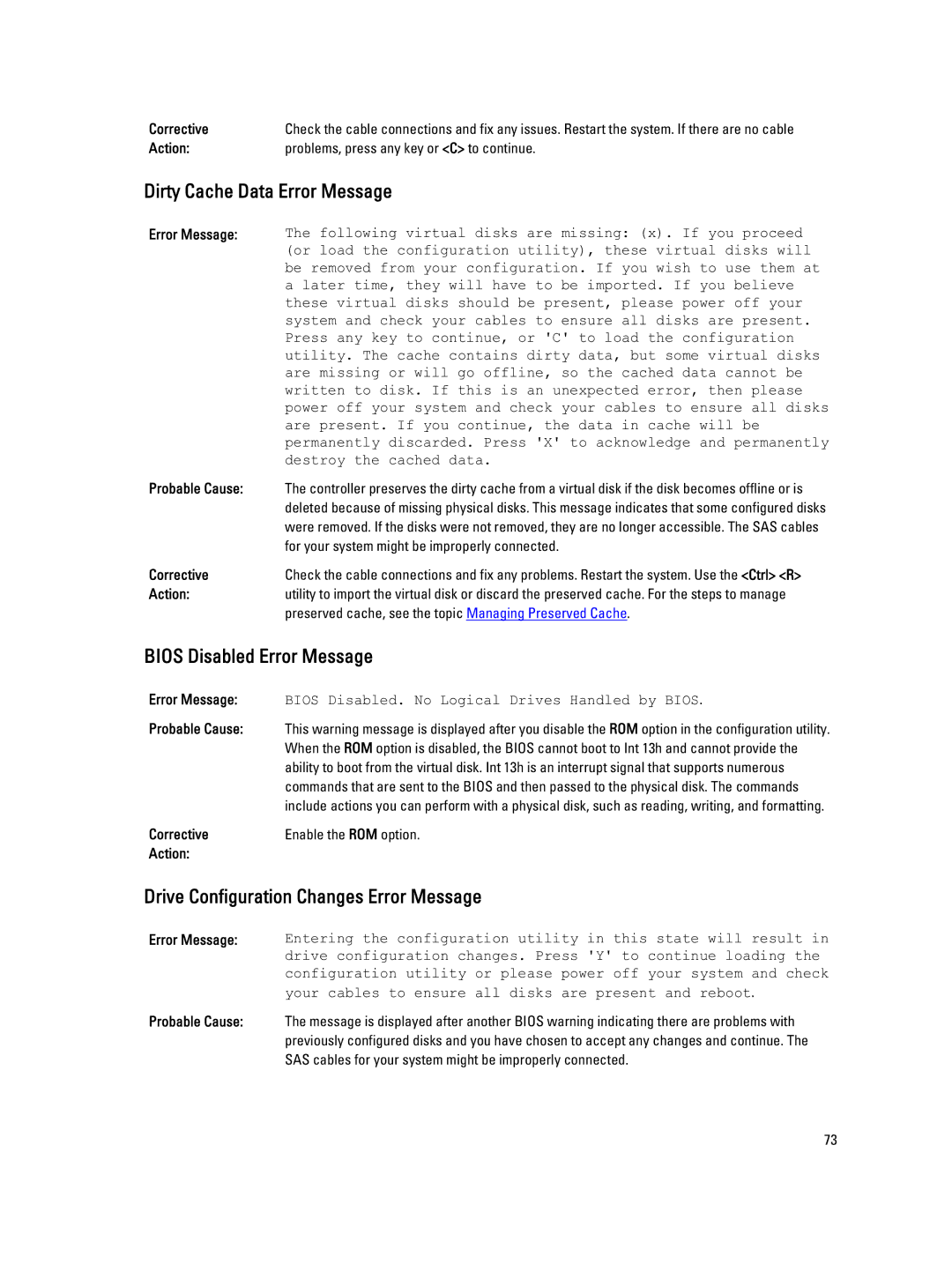Corrective | Check the cable connections and fix any issues. Restart the system. If there are no cable |
Action: | problems, press any key or <C> to continue. |
Dirty Cache Data Error Message | |
Error Message: | The following virtual disks are missing: (x). If you proceed |
| (or load the configuration utility), these virtual disks will |
| be removed from your configuration. If you wish to use them at |
| a later time, they will have to be imported. If you believe |
| these virtual disks should be present, please power off your |
| system and check your cables to ensure all disks are present. |
| Press any key to continue, or 'C' to load the configuration |
| utility. The cache contains dirty data, but some virtual disks |
| are missing or will go offline, so the cached data cannot be |
| written to disk. If this is an unexpected error, then please |
| power off your system and check your cables to ensure all disks |
| are present. If you continue, the data in cache will be |
| permanently discarded. Press 'X' to acknowledge and permanently |
| destroy the cached data. |
Probable Cause: | The controller preserves the dirty cache from a virtual disk if the disk becomes offline or is |
| deleted because of missing physical disks. This message indicates that some configured disks |
| were removed. If the disks were not removed, they are no longer accessible. The SAS cables |
| for your system might be improperly connected. |
Corrective | Check the cable connections and fix any problems. Restart the system. Use the <Ctrl> <R> |
Action: | utility to import the virtual disk or discard the preserved cache. For the steps to manage |
| preserved cache, see the topic Managing Preserved Cache. |
BIOS Disabled Error Message
Error Message: | BIOS Disabled. No Logical Drives Handled by BIOS. |
Probable Cause: | This warning message is displayed after you disable the ROM option in the configuration utility. |
| When the ROM option is disabled, the BIOS cannot boot to Int 13h and cannot provide the |
| ability to boot from the virtual disk. Int 13h is an interrupt signal that supports numerous |
| commands that are sent to the BIOS and then passed to the physical disk. The commands |
| include actions you can perform with a physical disk, such as reading, writing, and formatting. |
Corrective | Enable the ROM option. |
Action: |
|
Drive Configuration Changes Error Message | |
Error Message: | Entering the configuration utility in this state will result in |
| drive configuration changes. Press 'Y' to continue loading the |
| configuration utility or please power off your system and check |
| your cables to ensure all disks are present and reboot. |
Probable Cause: | The message is displayed after another BIOS warning indicating there are problems with |
| previously configured disks and you have chosen to accept any changes and continue. The |
| SAS cables for your system might be improperly connected. |
73
